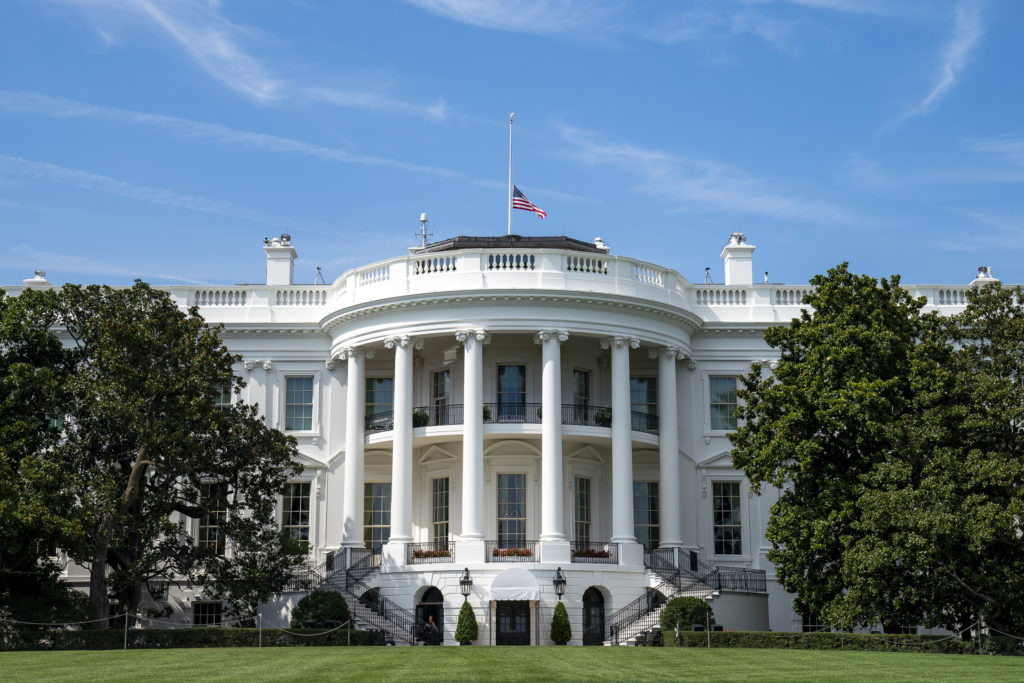The Texas Border and Insurrection Act Reform
.jpeg?sfvrsn=7f6b6efe_7)
Published by The Lawfare Institute
in Cooperation With

The Insurrection Act notoriously confers on the president extraordinarily broad authority to call out the militia or the armed forces to meet (depending on the context) “insurrections,” “rebellion,” “unlawful obstructions, combinations, or assemblages,” or “domestic violence”—all based on the president’s determination that one of those vague predicates is satisfied, and without any time limit. It is a breathtakingly broad emergency power that is urgently in need of reform.
Such reform continues to be widely framed as an anti-Trump initiative, due to reports about the former president’s plans to use the militia or the armed forces in the homeland if elected. Bob Bauer and I argued late last month that this framing is misleading and unhelpful. The Insurrection Act is an important presidential authority, but as currently drafted it can be abused by presidents of either party. It should be amended now to ensure that every president has adequate but responsibly checked power to meet serious domestic disturbances.
The imbroglio between the federal government and the state of Texas at the Texas border helps demonstrate why Insurrection Act reform should be a bipartisan issue. After the Supreme Court vacated a ruling by the U.S. Court of Appeals for the Fifth Circuit that prohibited federal border patrol agents from cutting concertina wire along the Rio Grande, Texas Governor Greg Abbott (R) directed members of the Texas National Guard and state troopers to continue to install the wire and to prevent federal officials from accessing the relevant area. Abbott on Jan. 23 suggested that he will continue to defy federal authority to defend Texas from “invasion.” Rep. Joaquin Castro (D-Texas) the same day urged President Biden “to establish sole federal control of the Texas National Guard.” Abbott said yesterday, Jan. 26, that if President Biden federalizes the National Guard, he is “prepared . . . to make sure that we will be able to continue” to build border “barriers” and “expand our denial of illegal entry into the state of Texas.”
It is too early to know the exact contours of Abbot’s defiance of federal authority, whether President Biden will federalize the National Guard, or whether the president will decide to deploy the National Guard or the U.S. armed forces to meet whatever forms of federal law defiance Abbott might engage in.
But one legal basis for some of these presidential actions would be the Insurrection Act. Without taking sides in the conflict between Texas and the federal government, this conflict demonstrates why Insurrection Act reform should be of interest to both parties.
Democrats have focused on the Insurrection Act mainly as a fount of potential abuse, but it is also a powerful presidential tool to vindicate legitimate federal authority. And many Republicans have seen Insurrection Act reform only through the lens of the anti-Trump framing, without considering how a president wielding it might go too far in ways that politicize the National Guard or the military, or that trample on state interests. The Texas situation should help both sides see the other side.
It also demonstrates the stakes of reform. Many reform proposals, including mine and Bauer’s, propose a time limit on presidential power under the Insurrection Act, subject to approval by Congress. This element of reform is vital to check a president from having limitless power to hail the military into the domestic sphere. But it comes with a serious cost. As Bauer and I wrote: “This is where the rubber meets the road, since Congress might not approve the president’s continued use of the military.”
The Texas standoff highlights the profound challenges of reforming the Insurrection Act to bring Congress into the equation to prevent the abuse of domestic emergency military power while sufficiently empowering the president to maintain order. The challenges are all the greater because they come in a presidential election year at a time when our politics are riven and everyone will be focused on short-term winners and losers instead of the long-term health of the nation.
And yet the current statute is clearly out of whack in giving the president too much dangerous leeway. Insurrection Act reform is devilishly hard, but vital.





